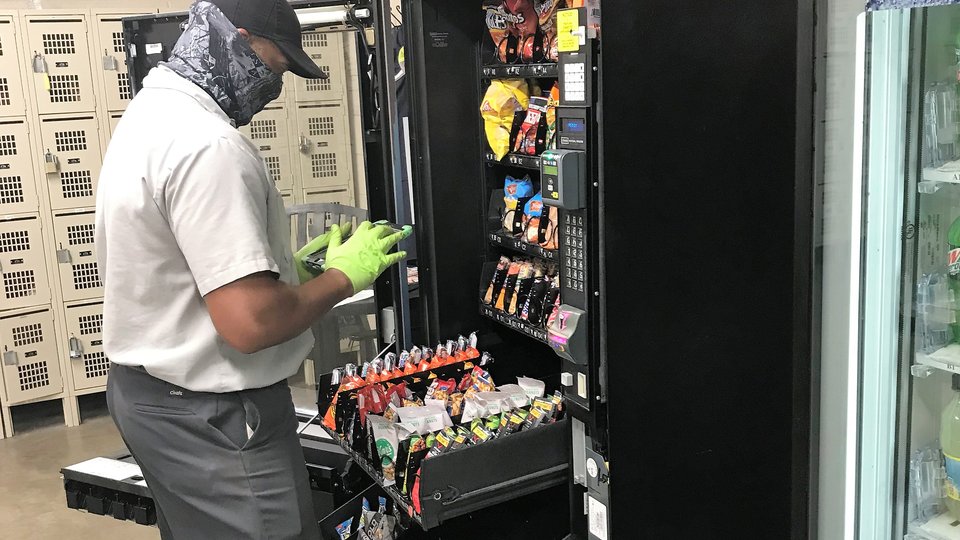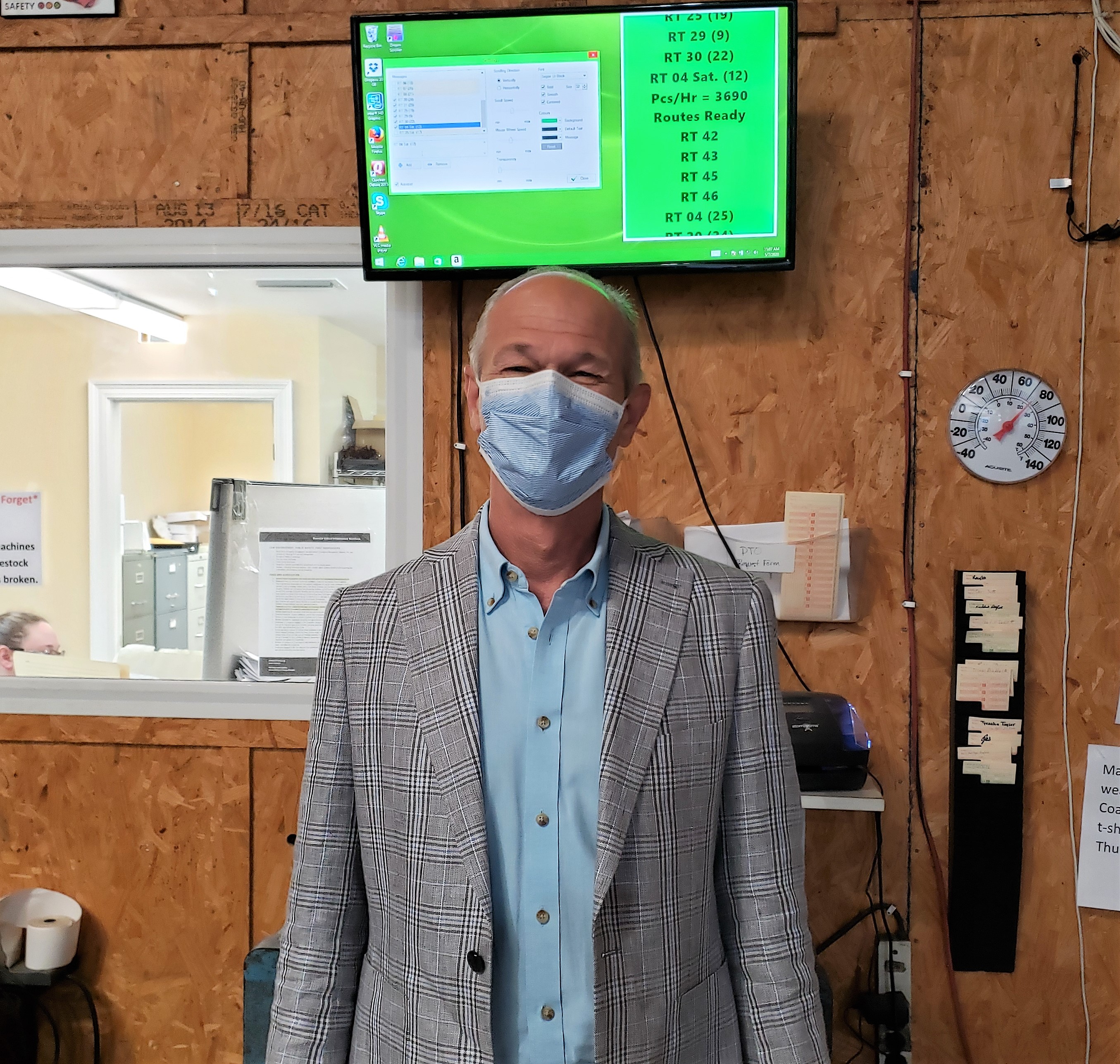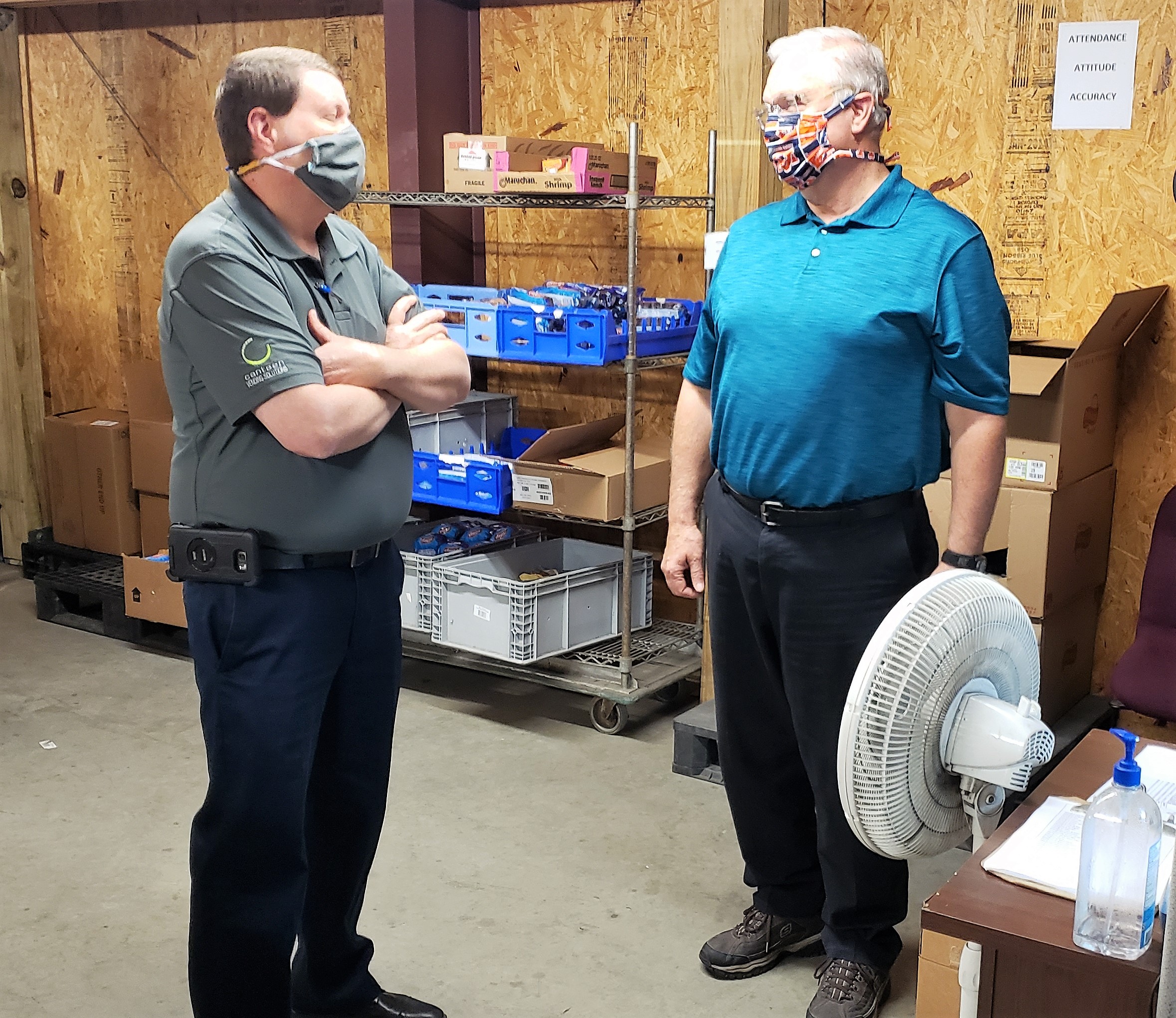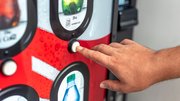Vending
Alabama CS operator weathers COVID-19 focusing on safety, secures PPP loan
Gulf Coast Canteen has so far weathered the setback reasonably well under the direction of company president Greg Breland, a longtime industry veteran who.took decisive action early on by applying for government funds, having his employees tested for infection and introducing proactive sanitation practices.

May 20, 2020 by Elliot Maras — Editor, Kiosk Marketplace & Vending Times
Convenience services operators have always had to be flexible to succeed, given the fast pace of change in their industry, be it new technology, new competitors or a volatile economy.
The COVID-19 outbreak has been unique, however, both in its severity and in the speed in which it has shaken the business with customer location closures, employee illnesses and customer reluctance to spend money.
 |
| Greg Breland made sure all his employees got tested after one became infected with the virus. |
Gulf Coast Canteen, based in Mobile, Alabama with offices in Ocean Springs, Mississippi and Pensacola, Florida, has so far weathered the setback reasonably well under the direction of company president Greg Breland, a longtime industry veteran.
Breland took decisive action early on by applying for government funds, having his employees tested for infection and introducing proactive sanitation practices.
While the company did have some infected employees and was operating at less than full capacity in late March, business has since been moving in the right direction. The company is presently doing about 65% of its normal sales, which is better than many.
The company was better prepared than many at the outset because it added hand sanitizers to all locations when the SARS outbreak occurred in 2002 and 2003, said Breland.
COVID-19 infects staff
In late March, an employee at the company's Pensacola, Florida branch began showing symptoms of the infection after visiting relatives in New Orleans. Breland immediately contacted the local health department and was advised to have all employees at the branch arrange for testing.
"It was kind of a nerve wracking couple of days," he said. "It was pretty clear to me what my direction was. Everybody had to go get tested."
Each employee called the health department and was told where to get tested. "After that conversation, if you qualified, they would tell you where to go and what your appointment time was," Breland said. The county did not publicize the testing locations.
 |
| Jon Abbott, vice president of operations, and Eric Harrison, warehouse manager, ensure that all staffers follow safety precautions. |
"It took about a week to get all the test results back," he said.
Three employees tested positive for COVID-19 and had to stay home for 14 days. Before they could resume their roles full time, they had to be free of any fever for three consecutive days. Breland, wearing gloves and a face mask, took their temperatures in the morning.
Six employees came back with negative results. One was not deemed a candidate for testing based on his lack of proximity to the infected employee.
Breland advised his customers that service would be reduced temporarily, although drivers from other branches were able to pick up the slack.
Fortunately, they have all returned to full-time duty. The Pensacola branch was operating at full capacity on April 1.
PPP loan helps
On the Tuesday following the Friday he was back to full operating capacity, Breland received his payroll protection program loan from the Small Business Administration, allowing him to keep the operation running smoothly in the face of declining sales. He received enough money to cover eight weeks of payroll and rent.
In retrospect, Breland is thankful he didn't procrastinate in filling out his PPP loan application.
As soon as the SBA began accepting PPP loan applications, "I had everything all printed out and ready to go," he said. "I submitted Friday and my banker called me on Saturday. On Tuesday I had my money."
He is also thankful that he was able to work with a community bank. "They seem to be more nimble than the large banks," he said. "I've always used small community banks. They trust me more than they trust my assets."
Safety first
Breland has advised his customers that he is taking special safety precautions. He places hand sanitizer dispensers near every micro market kiosk with a sign instructing them to wash their hands. He has also left instructions to have the kiosk wiped at least once an hour.
Route drivers as well as pickers in the warehouse use gloves and masks at all times.
"The chances (of contamination) are fairly low, especially if my drivers are wearing gloves. If in fact somebody should get something on a pack of Lay's plain potato chips, the health department tells me the virus will be dead within 12 hours," he said.
However, "there's a possibility that their (the location's) employees could contaminate the market if somebody came in sick," he said.
Breland said customers need to assume a certain amount of responsibility for sanitation.
Outlook uncertain
Meanwhile, business is moving in the right direction. Distribution center accounts are up, reflecting the growth in industries that are expanding on account of the coronavirus pandemic, such as retail foods. The county prison accounts are also strong.
Long-term, it remains to be seen how soon businesses will reopen and to what extent they will rehire employees.
Breland believes white collar micro markets will take a hit this year and possibly longer on account of COVID-19.
"A lot of these companies are going to figure that they can work more people from home, and it's pretty efficient and they can have smaller rents," he said. "I believe that those environments may never come all the way back."
He agreed it remains to be seen how responsible customers will be about sanitation.
"I think the customers are still sorting it out right now," he said.
For an update on how the coronavirus pandemic is affecting convenience services. click here.
Photos courtesy of Gulf Coast Canteen.
About Elliot Maras
Elliot Maras is the editor of Kiosk Marketplace and Vending Times. He brings three decades covering unattended retail and commercial foodservice.
 ChatGPT
ChatGPT Grok
Grok Perplexity
Perplexity Claude
Claude






